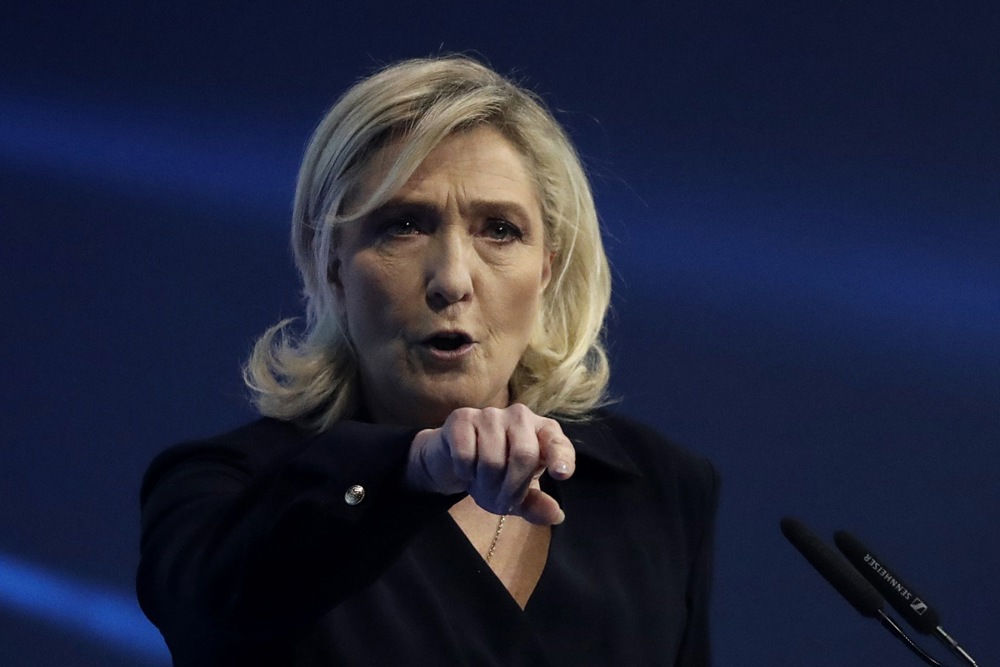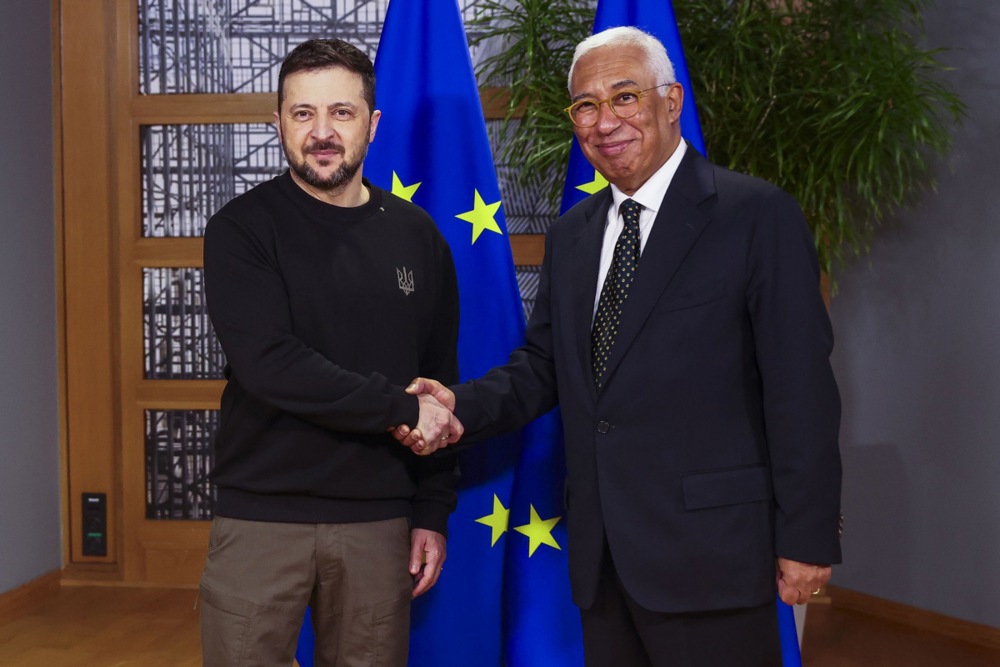Marine Le Pen, de facto leader of the French National Rally (RN) party, has reaffirmed herself as “profoundly Eurosceptic” in a newspaper interview with El País.
In the article published on December 19, she analysed the current political landscape, the internal tensions within French President Emmanuel Macron’s government and her proposals for France and Europe.
Against the backdrop of her trial for alleged misappropriation of European funds, which could lead to her political disqualification fromm the next French elections due in May 2027, Le Pen expressed her determination to maintain her influence in parliament and continue advocating for the interests of her voters.
Since Macron dissolved the National Assembly in June, the RN has emerged as a key force, solidifying its role as an effective opposition.
Le Pen’s political future could be in jeopardy on March 31, when a verdict is expected in her trial that could bar her from politics for five years.
Despite this uncertainty, she insisted her priority remained “the interests of the French people”. She warned that she would not hesitate to act against the government if it ignored her party’s proposals.
Le Pen addressed the recent appointment of François Bayrou as French Prime Minister, asserting that his role should not be to develop his own policies but to craft a budget that reflected the positions of the three primary forces within the National Assembly.

She warned that if Bayrou followed the same path as his toppled predecessor Michel Barnier and proposed a budget that disregarded RN demands, the outcome would be the same: “The same causes will produce the same effects,” she stated.
Le Pen recalled that Barnier was ousted due to his refusal to link pensions to the Consumer Price Index (CPI), a stance the RN deemed unacceptable. “He fell because of excessive pride. He thought we would settle for crumbs,” she said.
In this regard, she stressed that her party would not tolerate tax increases in a context where many families were struggling to pay their bills.
Rejecting accusations of destabilising the government, Le Pen directly blamed Macron for the political instability in France.
She accused him of creating €1 trillion in debt over seven years and of dissolving the Assembly under the false belief that he would win the elections.
According to Le Pen, the RN was merely using Constitutional tools to enforce the will of the 11 million voters who supported the party.
On the possibility of Macron resigning, she avoided a definitive statement but hinted that the President might be reaching the limits of his ability to govern. “It is up to him to determine whether he can continue in his role while no longer driving anything truly positive for the country,” she said.
Le Pen reinforced her critical stance toward the European Union, describing it as “undemocratic and contrary to national sovereignty.”
She specifically criticised the Mercosur-EU agreement, calling it an example of how decisions made by the European Commission undermined the interests of European citizens.
“The [EC President Ursula] Von der Leyen Commission epitomises everything we fight against,” she declared.

According to Le Pen, the agreement, which could be signed without consulting French representatives, reflected a structural problem in how the EU operates: “I cannot accept it,” she said, adding that decisions made “behind voters’ backs” were unacceptable.
Regarding the trial that could jeopardise her political career, she described the prosecutor’s request for her to attend court as a “violent and unjust attack”.
Even figures from the Left, such as leader of La France Insoumise Jean-Luc Mélenchon, have described the process as a “modern-day Inquisition”, Le Pen claimed.
For her, a conviction in this context would represent a direct attack on democratic legitimacy, aimed at nullifying the will of millions of voters.
She categorically rejected claims that the judicial process had influenced her political strategy, dismissing such theories as “absurd” and “conspiratorial.”
Le Pen did acknowledge that the trial had sparked public outcry, revealing, she said, how some judges could directly influence election outcomes.
On immigration, she advocated for drastic measures, such as restricting free movement within the Schengen area solely to citizens of member states and banning the entry of individuals without prior authorisation.
She argued that mass migration was overburdening France’s social systems and proposed policies to encourage higher national birth rates to counter demographic pressures.

“We must stop this immigration and make children,” she declared, denying any connection between that statements and theories of ethnic replacement.
According to Le Pen, the real problem lay in the demographic imbalance between Europe and Africa, where birth rates are significantly higher.
On international affairs, she criticised Europe’s strategy in the Ukraine war, arguing that the conflict could not be won without NATO’s direct involvement, which she warned would be catastrophic.
She expressed hope that US President-elect Donald Trump could mediate a diplomatic solution.
On Russian President Vladimir Putin, Le Pen dismissed the notion that he posed a direct threat to the EU, arguing that he lacked “the ambitions or the means” to conquer the continent.
While she said she previously regarded him as a significant statesman, she avoided making a definitive judgment on his current leadership.
Le Pen concluded by emphasising that her party was prepared for any scenario, including her potential disqualification.
She insisted that the RN had a strong figure in her political protégé, the actual party leader Jordan Bardella, but reiterated that her ultimate goal remained to be a presidential candidate in the next elections.
Thierry Breton, former European Commissioner for the Internal Market, has issued a stark warning regarding France’s economic outlook, urging the swift appointment of a new government to address the country’s mounting fiscal challenges. https://t.co/QsTtCk5VG2
— Brussels Signal (@brusselssignal) December 19, 2024





